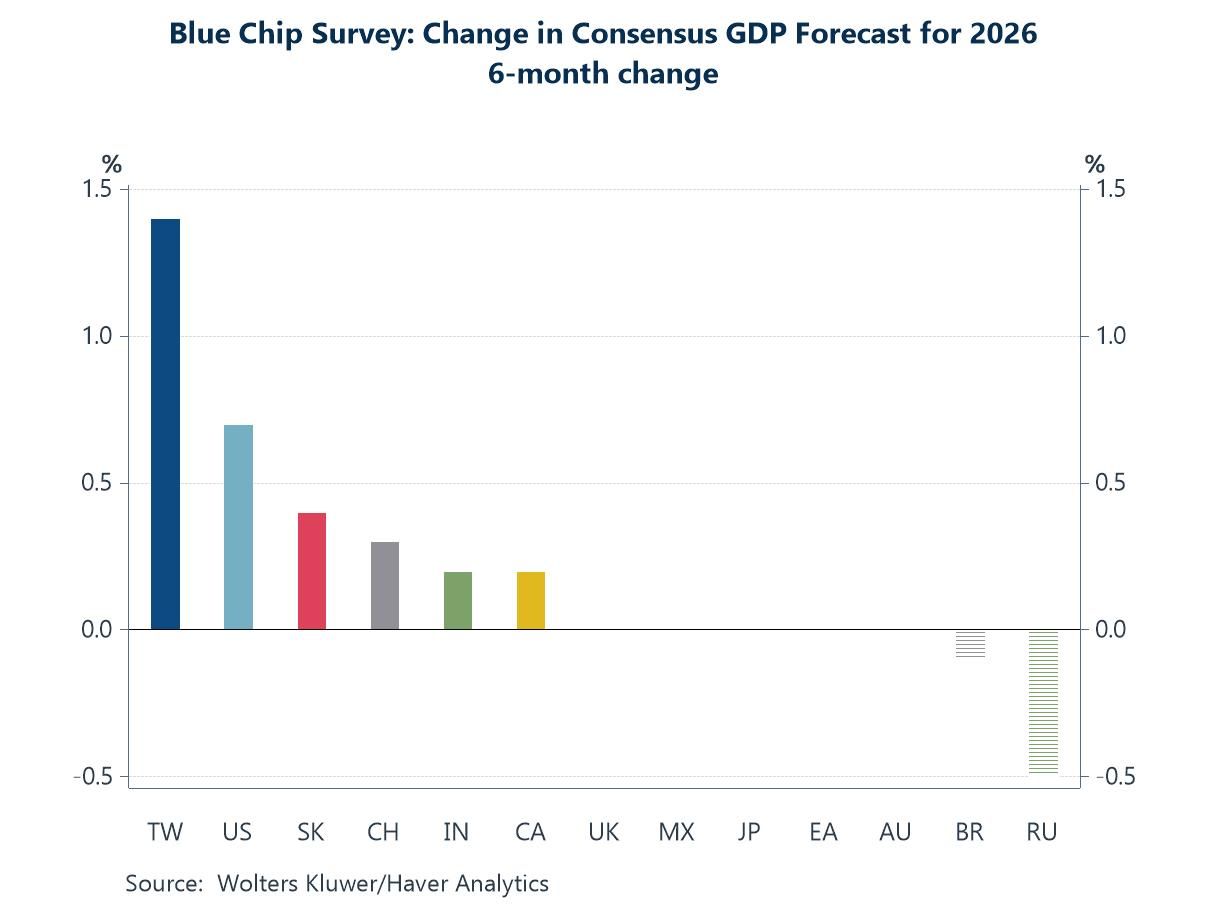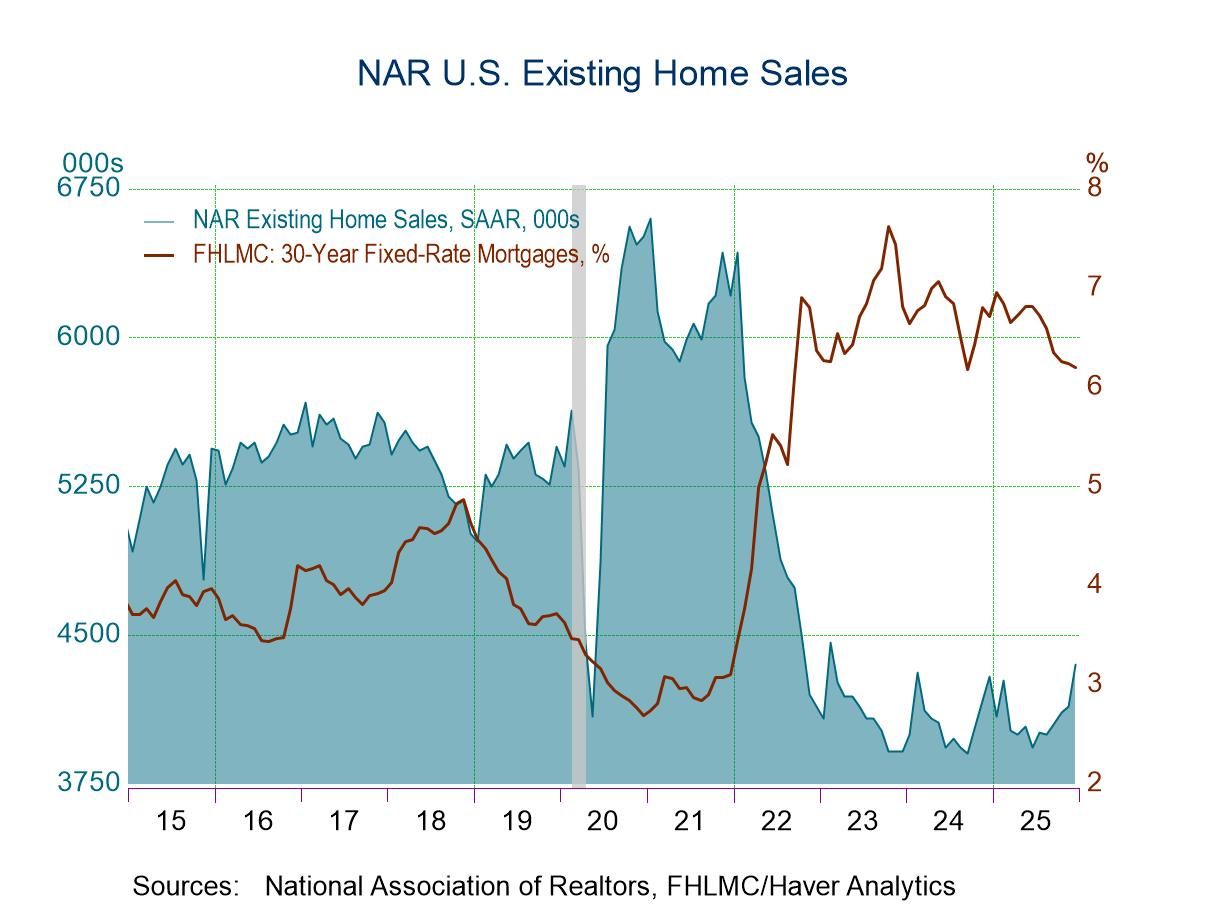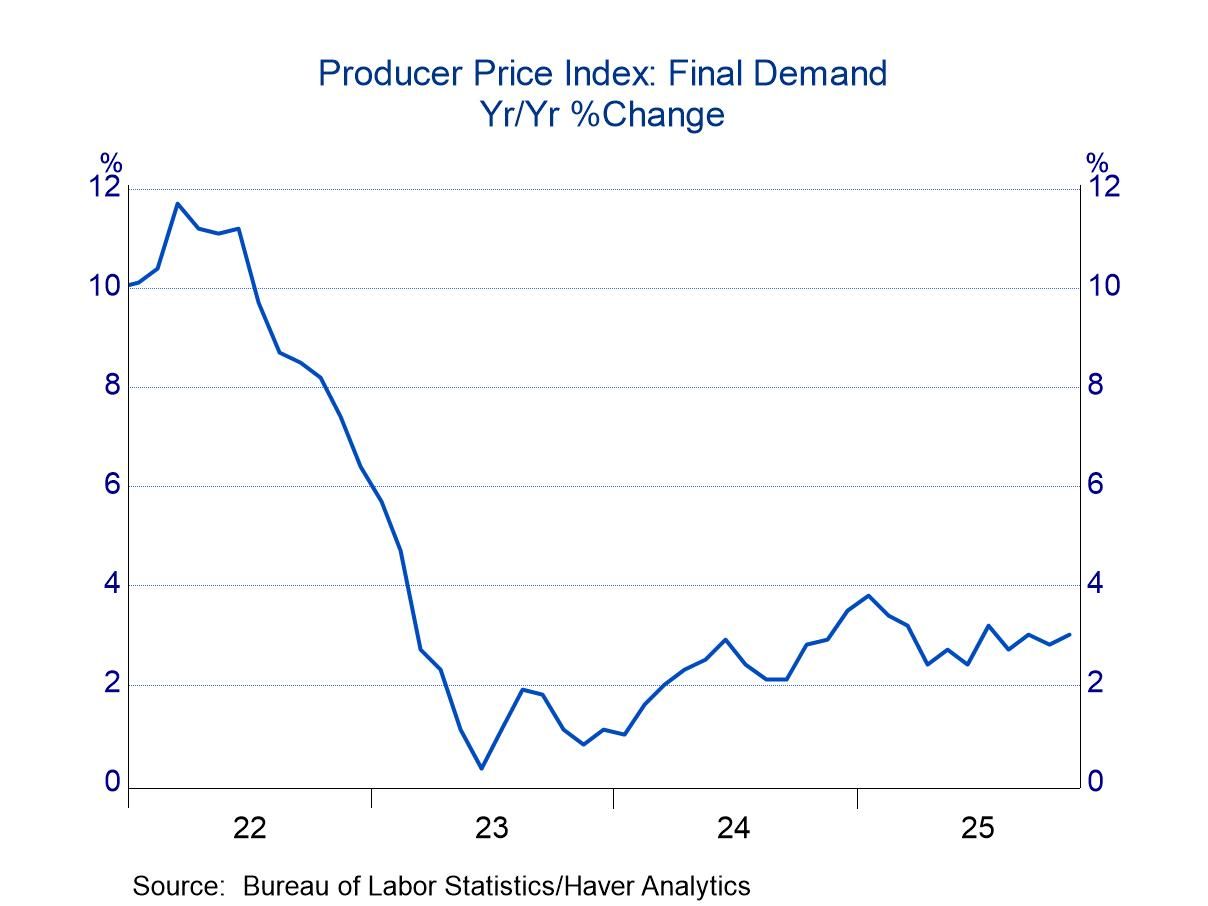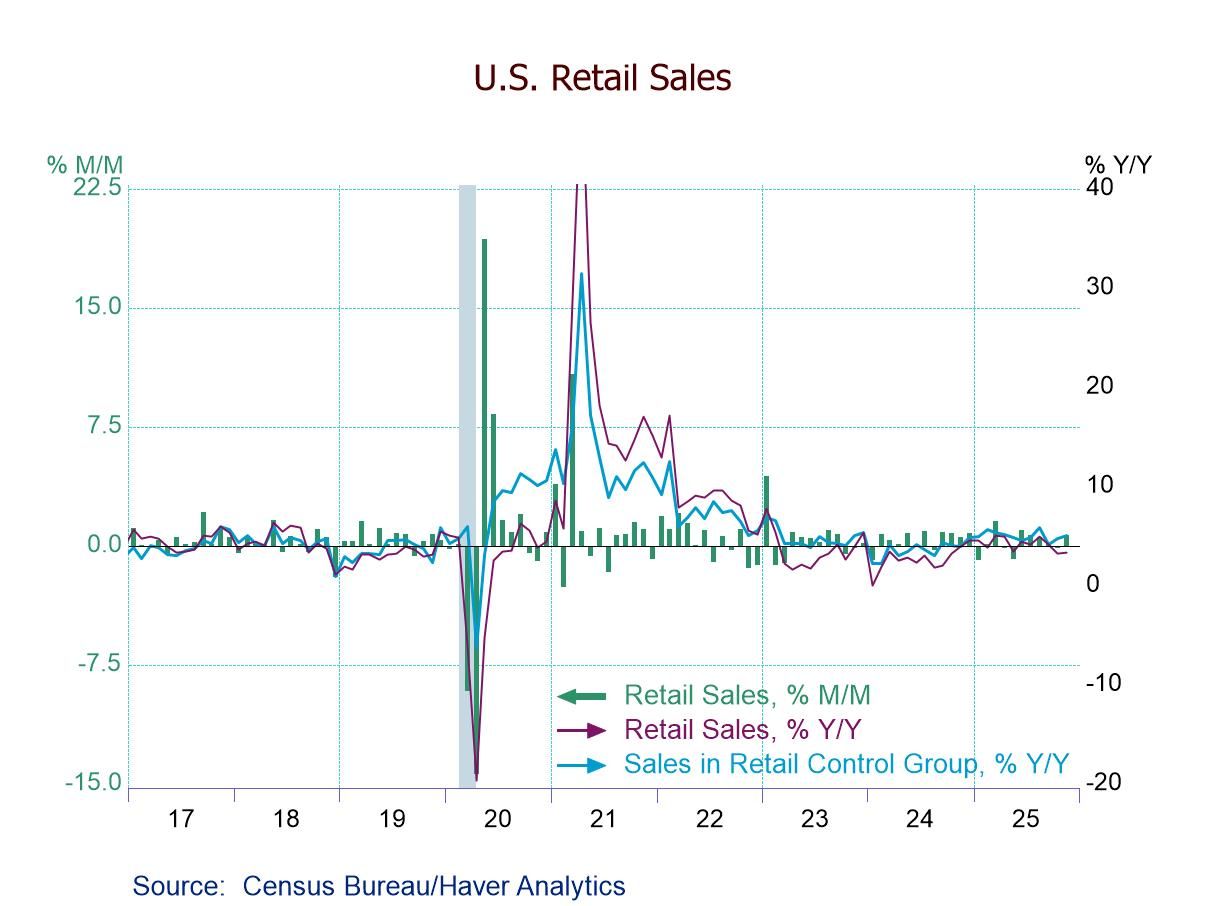 Global| Jun 12 2009
Global| Jun 12 2009Michigan Consumer Sentiment Stable But The Current View of Economic Conditions Jumps
by:Tom Moeller
|in:Economy in Brief
Summary
Good news seems better than bad news. That's an obvious statement, but it's behind the recent rise in the University of Michigan's early-June reading of consumer sentiment. At 69.0 the latest index level was roughly unchanged from May [...]
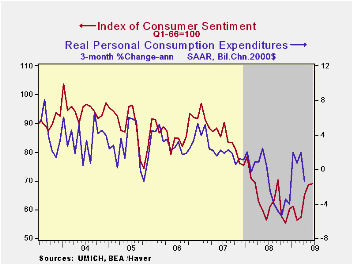
Good news seems better than bad news. That's an obvious statement, but it's behind the recent rise in the University of Michigan's early-June reading of consumer sentiment. At 69.0 the latest index level was roughly unchanged from May and it about matched Consensus expectations. The increase bodes well for the consumer spending outlook because during the last ten years, there has been a 61% correlation between the level of sentiment and the growth in real spending during the next five months.
The current economic conditions jumped ten percent from May to its highest level since last September. The reading for current personal finances just about made up the May decline. however, it was the jump in the reading of current conditions for buying large household goods to the highest level since March of last year that powered the increase. Showing a huge increase was the reading of current conditions for buying a motor vehicle. Though conditions for buying a house slipped, the level remained up sharply from last year.
The expectations component of consumer sentiment slipped this month from May but it remained near the highest level since early last year. Expectations for personal finances rose with higher stock prices but expected business conditions during the next year slipped. Expected conditions during the next five years similarly slipped. Both of these readings remained, however, from their lows of earlier this year. Though unemployment was expected to decline over the next twelve months, price inflation was expected to heat up. Interest rates were expected to fall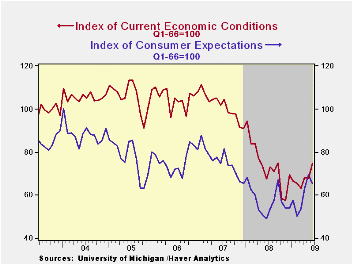
The opinion of government policy, which may eventually influence economic expectations, fell this month after having jumped through May. It remained near the highest level since 2002. A reduced 22% of respondents thought that a good job was being done by government while an increased 29% thought that a poor job was being done. Nevertheless, despite these monthly changes, the trend is still very much toward a favorable reading of policy actions.
Inflation expectations for the next year rose further to 3.8%. That compares to a low of 1.7% last December but remained down from a reading which was as high as 7.0% last May.
The University of Michigan survey data is not seasonally adjusted. The reading is based on telephone interviews with about 500 households at month-end; the mid-month results are based on about 300 interviews. The summary indexes are in Haver's USECON database with details in the proprietary UMSCA database.
Jobless Recovery Redux? from the Federal Reserve Bank of San Francisco can be found here.
| University of Michigan | Mid-June | May | April | June y/y | 2008 | 2007 | 2006 |
|---|---|---|---|---|---|---|---|
| Consumer Sentiment | 69.0 | 68.7 | 65.1 | 22.3% | 63.8 | 85.6 | 87.3 |
| Current Conditions | 74.5 | 67.7 | 68.3 | 10.2 | 73.7 | 101.2 | 105.1 |
| Expectations | 65.4 | 69.4 | 63.1 | 32.9 | 57.3 | 75.6 | 75.9 |
Tom Moeller
AuthorMore in Author Profile »Prior to joining Haver Analytics in 2000, Mr. Moeller worked as the Economist at Chancellor Capital Management from 1985 to 1999. There, he developed comprehensive economic forecasts and interpreted economic data for equity and fixed income portfolio managers. Also at Chancellor, Mr. Moeller worked as an equity analyst and was responsible for researching and rating companies in the economically sensitive automobile and housing industries for investment in Chancellor’s equity portfolio. Prior to joining Chancellor, Mr. Moeller was an Economist at Citibank from 1979 to 1984. He also analyzed pricing behavior in the metals industry for the Council on Wage and Price Stability in Washington, D.C. In 1999, Mr. Moeller received the award for most accurate forecast from the Forecasters' Club of New York. From 1990 to 1992 he was President of the New York Association for Business Economists. Mr. Moeller earned an M.B.A. in Finance from Fordham University, where he graduated in 1987. He holds a Bachelor of Arts in Economics from George Washington University.



